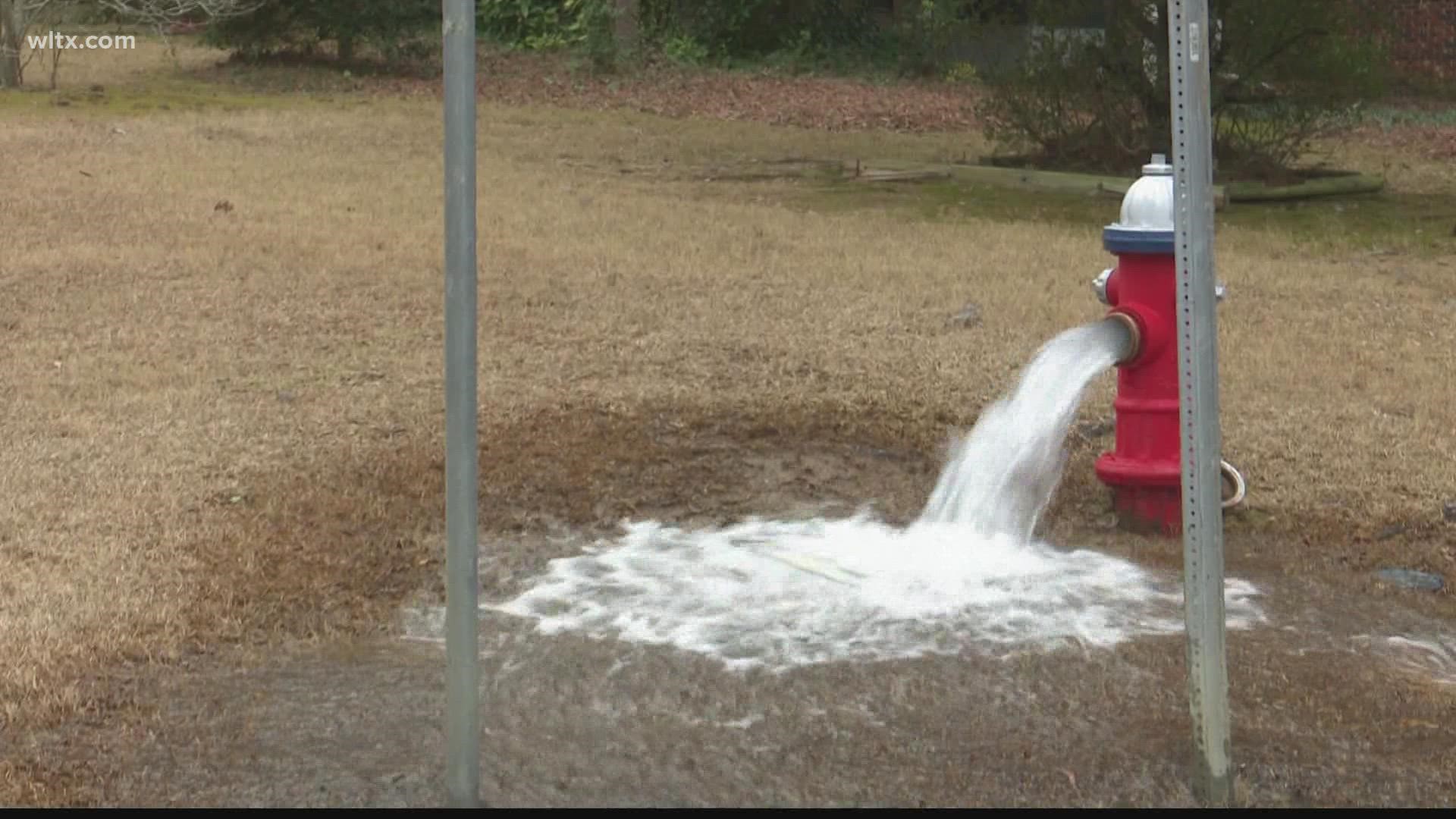COLUMBIA, S.C. — Frustration continues to grow among city leaders and residents alike as water mains continue to break and boil water advisories persist.
Columbia Water says it is facing a staffing shortage, resulting in delayed response to reports. The department has a backlog of 4,000 customer repair requests.
"Water's been running in both directions up from towards our house, towards our block, and the other direction, for at least two weeks," said Betty Amick, who lives in Columbia's St. Andrews community. "Water just keeps running from the break."
Amick said it's taken weeks for Columbia Water to respond to the water main break in her neighborhood. When News 19 arrived on the scene on Friday, crews were fixing the water main break.
Columbia Mayor Daniel Rickenmann said a lot of improvements need to be made.
"We’ve got to get caught up," Rickenmann said. "It’s not healthy for the system, it’s not health for our community, and it’s not good customer service."
The mayor said staffing issues are creating a snowball effect at the department.
"The biggest thing is the volume of work orders that we’ve seen, but also the categories of those work orders," Rickenmann said.
Rickenmann said the community has hired private contractors to help complete the work orders, from meter settings to broken water main repairs. The city is also working to create a different service line for emergency requests.
"It's an opportunity for us to evaluate how we operate, and what we can do differently," Rickenmann said. "I wish I could say that we're doing a great job right now. We're not. We're doing everything we can to improve communications and constituent services and making sure that the basic services are done the most effective and efficient way to provide what our taxpayers expect."
Columbia Assistant City Manager Clint Shealy said Columbia Water has 207 job vacancies. That's a third of their workforce. Shealy said the vacancies remain, in part, due to people not returning back to work after COVID and the lack of skilled labor to fill the positions.
"We have had a lot of departures," Shealy told News 19. "When you don’t have the amount of staff that you need, service delivery is impacted."
Shealy said some of their positions require commercial driver's licenses to operate heavy equipment, transport equipment, or drag larger vehicles out to job sites.
In January, a dozen boil water advisories were issued after multiple water line breaks. Shealy blames old infrastructure and colder temperatures.
"Some of our oldest piping was over 100 years old, and that’s either been replaced or we went through the process of cleaning and lining the pipeline, which kind of restored it to a newer condition," Shealy said.
Shealy told News 19 some pipes were only made to last for 40 to 50 years.
"We've got pipes in the ground that are 80 years old," Shealy said. "We're doing more replacement work now with ductile iron piping in the neighborhoods."
Shealy said the current galvanized piping does not have the 100-year life span like the newer pipes used today.
"Last year’s $120 million capital plan is being spent," Shealy said. "About two thirds of that is being spent on the waste collection and pumping systems for our waste water systems."
Meanwhile, Congaree Riverkeeper Bill Stangler reported more than 1.9M gallons of sewage was spilled in the river last year due to inadequate pipes and water runoff.
"The City of Columbia had the most spills. They have the largest sewage system, and they’re responsible for almost 1.5 million gallons of sewage spilling into our local waterways," Stangler said. "Raw sewage has pathogens in it that can make people sick so river users can end up with gastrointestinal illnesses, rashes, infections, things like that. We don't want to see that in our waterways.
Those spills lead to fines that are paid with taxpayer dollars.
In 2013, the Environmental Protection Agency (EPA) fined the City of Columbia nearly $500,000 for sewage leaks.
The following year, the city, the state health health agency (DHEC) and the EPA signed a consent degree outlining new requirements for Columbia Water.
"A negotiated byproduct of the investigation that EPA came, said, ‘look you’re got too many sanitary sewer overflows, you’ve got to do certain things to work toward the path of minimizing those," Shealy said.
According to the decree, the city could face up to $2,000 for each additional sewage spill.
The department told News 19, "As of the end of calendar year 2021, the City of Columbia has paid the EPA $34,500 in fines for unpermitted discharge (SSO) events."
Some of the standards in the 222-page document include management, operations, and maintenance programs.
"Our mission vision is to be a best-in-class utility that provides excellent customer service, excellent drinking water and protection of the environment for our community," Shealy said. "It’s a lengthy path, but we’re getting there."

